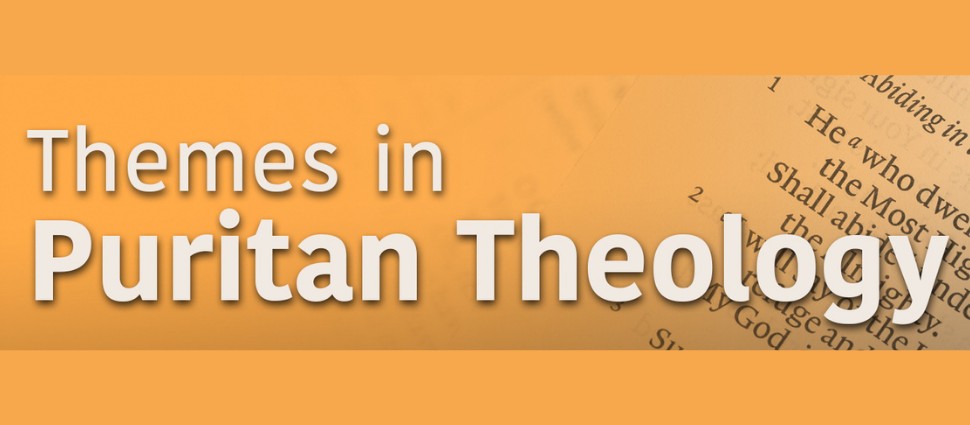Themes in Puritan Theology: God Is

Mar 23, 2018
Last time, we considered the Puritan doctrine of Scripture. According to the Westminster Shorter Catechism, the Scriptures primarily teach us “what man is to believe concerning God and what duty God requires of man.” The Bible as “a full and perfect canon” provides “the Credenda, what we are to believe; and the Agenda, what we are to practice” as it leads us into “the deep things of God” (Thomas Watson, A Body of Divinity). And so the next question gets to the foundational “thing” in asking (Q4), “What is God?” This sixth post provides (barely!) a sampling of the Puritan doctrine of God, by opening up the catechism answer, “God is a spirit, infinite, eternal, and unchangeable in his being, wisdom, power, holiness, justice and truth.”
That God is a “spirit” (John 4:24) concerns his essence, says Thomas Vincent (1634–1678), as an “immaterial substance” (An Explicatory Catechism, 1675). Likewise, Edward Leigh (1602–1671), affirms that God as a spirit is “incorporeal” and “invisible,” and so “a most simple and noble being” (A Treatise of Divinity, 1646). God’s simplicity concerns the fact that he is not a compound of different parts or a sum of his attributes but a pure spirit identical to all his attributes in their unity. So, God is not “made up of” but “is” his attributes as we describe him both positively (what he is) and negatively (what he is not).
God as a spirit differs from humans (with immaterial souls) and angels (spirit beings) as finite and dependent. Instead, he as the infinite and self-existent spirit stands totally independent of his creation. His “aseity” thus calls attention to this independence from all things from which he needs nothing as the “all-sufficient” one (Westminster Confession of Faith, 2.2).
Regarding his attributes, characteristics allowing us to “better conceive . . . what he is” (Leigh), the catechism answer unfolds with the clear distinction between God’s incommunicable and communicable attributes. Attests Leigh: “Some are Incommunicable and agree to God alone; as when he is said to be Eternal, Infinite. Others are Communicable in a sort with the creatures, as when he is said to be Wise, Good.” Even those communicated to us as the image of God “are not so in us as in God, because in him they are Essential.” Likewise, the incommunicable ones are yet “communicable to us in their use and benefit, though not in their Nature” or by way of operation rather than image (e.g. his omnipotence acts for us Phil 3:21).
Turning to the incommunicable attributes, we find that God is infinite, or “without bounds, in regard to his being and perfection” (Vincent). Thus, God remains “incomprehensible” (Job 11:7) and without “measure” regarding place (Jer 23:24), time (1 Tim 1:17), and “all of his incommunicable attributes.” For example, God is “omnipresent” and so “present everywhere” because he cannot “be shut out from any place” or bound by space due to his immensity (Leigh). Likewise, God is eternal” which denotes that he has been and always will be without “beginning, ending, or succession” (Leigh). Finally, God is unchangeable or immutable as he is “always the same without any alteration” in his “nature and essence” (Psa 102:25-27). In this way, God is impassible (without “passions”, WCF 2.1), which means he cannot be affected or hurt by any external force (which does not mean the absence of emotions).
Regarding God’s communicable attributes shared with man, whose “changeable being” possesses these properties in a “finite and imperfect” manner (Vincent). Instead, God retains them all in an “absolutely perfect” way in his infinity, eternity, and immutability. So, God in his wisdom actively plans all things according to the knowledge he has of “both himself and all possible [and actual] things perfectly” (Psa 47:5). God in his power possesses the capability to “do all things” as the “almighty God” (Gen 17:1) and while able to accomplish “whatever he pleaseth,” (Vincent) he cannot perform that which is “contradictory” to his “divine, immutable, simple, most true and perfect essence” (Leigh). Likewise, Charnock (Existence and Attributes of God) argues that we must distinguish between his absolute power (“that which . . . is possible to be done”) and his ordained power (“that . . . which he has ordained or appointed”). God in his holiness exhibits himself as “infinitely pure” (Vincent) in all his ways (Psa 145:17), and with an “incommunicable eminency of his divine majesty exalted above. . .and divided from” all things (Leigh). God in his justice shows himself “infinitely righteous and equal, both in himself, and in all his dealings with his creatures” and which manifests itself in the “the punishment which he inflicted” on Christ. God in his goodness “is altogether good in himself, and the author of all good” (Psa 119:68) and shown towards sinful humanity through his “patience and forbearance,” which should lead them to repentance (Rom 2:4). Finally, God in his truth speaks of his being “sincere and faithful, free from all falsehood and simulation” (Titus 1:2) and manifests itself in the veracity of all Scriptural teachings, history, prophecies, promises, and judgments (Vincent).
Meet the Puritans is a conversation of the Alliance of Confessing Evangelicals. It is supported only by its readers and gracious Christians like you. Please prayerfully consider supporting us.
For previous posts in this series, see:





